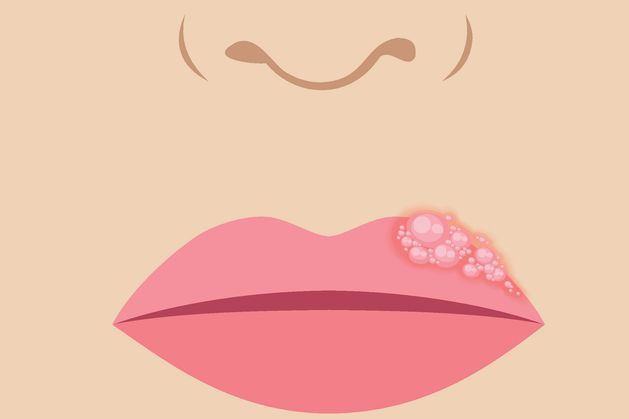Ask the doctor: My six-year-old has a cold sore — will she always ...

Question: My six-year-old daughter has a cold sore and she is really self-conscious about it. She had one previously when she was about 18 months and in creche but nothing since. Do you think she will get them all the time now? Also, is there anything I can do to speed the recovery and prevent it happening again?
Dr Grant replies: Cold sores around the nose and mouth (oral and nasal mucosa) are caused by herpes simplex virus type 1 (HSV-1) which can also affect the genital mucosa, eye, skin, central nervous system and rarely visceral organs (e.g. the liver and spleen).
Treatment depends on whether this is a primary (first ever) infection, severity of the infection, frequency of recurrence and whether or not, it is local mucosal or spread further to cause disseminated disease. Primary HSV-1 infection lasts for approximately 12 days. Believe it or not, subsequent infections are frequently asymptomatic, but in some people they can produce a variety of signs and symptoms.
Children and infants can get infected by kisses received from infected friends or loved ones, as HSV-1 is typically transmitted from person-to-person via infected oral secretions during close contact. The most common symptoms in young children are gingivostomatitis and pharyngitis (sore throat) which involves inflammation in the gums and oral mucosa that can be very painful, resulting in lack of appetite and dehydration as it can be sore to swallow.
During a first episode of cold sores (primary infection) there is an increased risk of flu-like symptoms (fever, fatigue, headache, general aches and pains), a longer duration of skin lesions, and prolonged viral shedding compared with recurrent disease. Ideally antiviral medication, topical and oral, is commenced within 72 hours of symptom onset, resulting in faster healing of skin lesions, decreased pain, and a shorter duration of fever.
Once the mouth sores or skin lesions occur you are contagious for about seven days. The usual duration of treatment is about 7-10 days, depending on the severity of symptoms. If the lesions have not healed (turned into the dry crust phase) after 10 days, the duration of treatment can be extended.
Some people are simply more prone to recurrent infection. The HSV-1 virus reactivates from the largest sensory ganglion of the face (part of the trigeminal nerve), where it persists in a latent state, leading to recurrent cold sores, typically along the border of the lips. Recurrent episodes of HSV-1 are generally less severe in terms of clinical symptoms and a shorter duration of illness than primary infection. Recurrent infection is estimated to occur in about 20-40pc of the infected population.
Often people recognise the prodromal symptoms such as tingling, burning and mild pain and episodic oral antiviral medication can be started immediately, since treatment can decrease the length of recurrences if initiated promptly after onset. For people who suffer recurrent episodes, especially if there is no clear prodrome, chronic suppressive antiviral therapy can be the treatment of choice.
Recurrent infection is likely to occur in the same spot. Some patients notice their HSV-1 infections are triggered by sunlight and therefore use daily sunscreen. If you get an active outbreak of HSV-1, you should avoid kissing or sharing utensils, glasses, water bottles, towels, or lip balm.
Although this may not reduce the risk completely, since asymptomatic shedding can occur, transmission is most likely in the setting of active lesions and oral sexual activity should be avoided if you have active lesions. This is particularly important if the partner is pregnant and never had HSV-1 infection because if primary HSV-1 is acquired during pregnancy it is associated with high risk for transmission to the unborn child.
As your daughter is only six years old, it is perfectly safe to her to use topical antiviral cream in the same way an adult would. If you notice she has a mild head cold, keep a close eye on her face for early signs of a possible cold sore and start applying cream as soon as possible.
Unfortunately, one of the oral anti-viral medication is only licenced in adolescents (age 12 and above). The other oral ant-viral medication can only be used to treat/prevent recurrent Herpes simplex infections in immunocompromised children aged two years and over. Of course intravenous antiviral medication can be given to children who need hospital admission. I am sure your daughter has a healthy normal immune system and will most likely be asymptomatic from here on.
Dr Jennifer Grant is a GP with Beacon HealthCheck

































































